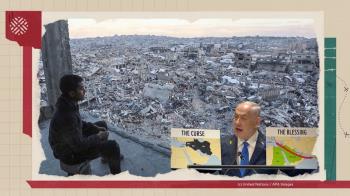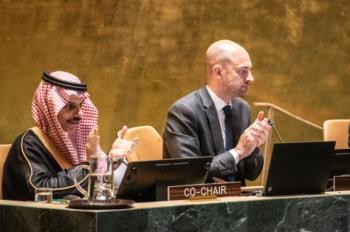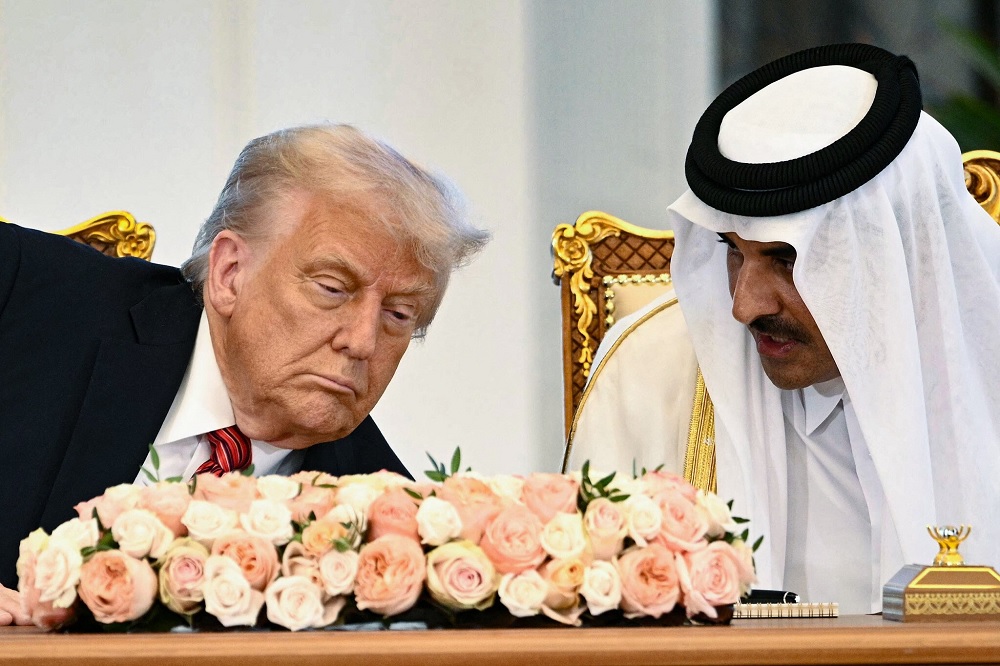Alwaght- Four days after eight Israeli F-15s and four F35s flew to the Red Sea and fired their missiles from the Saudi airspace at the Qatari capital Doha in an effort to assassinate leaders of Hamas resistance movement, Qatari officials flew to the US to be guests of Israel's staunch backer President Donald Trump.
Hamad al-Miftah, the deputy head of the Qatari delegation, said in an X post: "The great dinner with President Trump has just finished", declining to report on what was discussed with the American president about the Israeli attack on the Persian Gulf emirate.
Contradictions of the White House old man
While there is still no evidence of direct US involvement in the attack on Qatar, and Benjamin Netanyahu has explicitly claimed Israeli responsibility, Donald Trump’s claim of being completely surprised by the strike is deeply contradictory.
On one hand, Trump asserted he was caught off guard by the Israeli operation. On the other, he stated that he had instructed his Secretary of State to warn Qatari officials—a warning that he admits came too late.
This contradiction suggests Trump was aware of Israel’s decision to bomb the Hamas leadership building in Qatar's capital at least briefly, and potentially hours, before the attack occurred. This raises a critical question: with this foreknowledge, why were US defense systems in Qatar not activated?
Furthermore, it remains unclear why Trump’s administration opted to notify Qatari officials, a move that proved ineffective, instead of directly tasking US Central Command (CENTCOM) to intercept the incoming Israeli missiles.
Bombing Washington's ally
Reports indicate that since October 7, 2023, the Israeli regime has engaged in military operations and sparked tensions in 11 regions and countries. These areas and countries are: Gaza, the West Bank, Lebanon, Syria, Iraq, Iran, Yemen, Malta (an Israeli drone attack on a ship belonging to the Freedom Flotilla for Gaza off the coast of Malta), Egypt (an Israeli tank attacked an Egyptian border post on the Gaza border on October 22, 2023, and the killing of an Egyptian soldier named "Khalid Sharif Asfora" due to indiscriminate shooting by the Israeli army in Rafah on May 27, 2024), Tunisia (an attack on the main ship of the "Steadfastness Flotilla" to save Gaza by an Israeli drone launched in Tunisian waters on September 9.
But Israel's latest aggression and provocative action was carried out on the soil of one of US's closest non-NATO allies, a country that has established a very close relationship with the Trump administration and hosts at least 11,000 American troops and dozens of American fighter jets and defensive equipment at the Al Udeid military base, the largest US Air Force base in the region. Was the presence of over 100 American fighter jets, an active joint air operations center controlling US air operations in the West Asia region, a US regional air operations coordination and monitoring center, and various American aircraft including F16s, F15s, B52 and B-1 bombers, stealth F22 fighters, RC-135 electronic reconnaissance planes, and various advanced US combat and surveillance drones really not enough to protect Qatar from 10 missiles launched by Israeli fighters?
It is noteworthy that the Israeli regime's fighters flew a distance of 1,800 to 2,000 kilometers to attack Qatar, and mid-air refueling by KC-707 tankers was conducted over this long distance. Israel's Channel 12 television confirmed the refueling of Israeli fighters in a report, and once again the footprint of American refueling tankers is seen in this operation. So, can the US really shirk responsibility for Israel's attack on Qatar?
What is more interesting is that Qatari officials explicitly stated that when the US "warned" them, the sound of explosions in Doha could be heard simultaneously. This is while even a single phone call from the US president to the Israeli PM could have stopped the attack. However, instead of calling Netanyahu, Trump gave Qatari officials a call, a too late one.
Trump's green light to attack
After the attack, Trump even seemed contented by the attack on Qatar, in a post on his social media site True Social said eliminating Hamas was a "worthy goal." Given the available evidence, the most optimistic interpretation is that not only did Trump fail to act to prevent the attack on Qatar, but also in its aftermath—an attack he was reportedly aware of—he rushed to mend ties with Doha. He assured Qatari leaders that such an incident would not happen again and even directed Secretary of State Marco Rubio to finalize a defense cooperation agreement with the Persian Gulf Arab state.
However, given Trump’s contradictory and performative behavior following Israel’s attack, a critical question presents itself: Can Qatari leaders ever trust Washington again? With the US already failed a test of protecting Qatar, is not giving it a second chance a miscalculation? Ultimately, how can Doha leaders possibly convince themselves to trust renewed promises from Trump about their nation's protection?



























